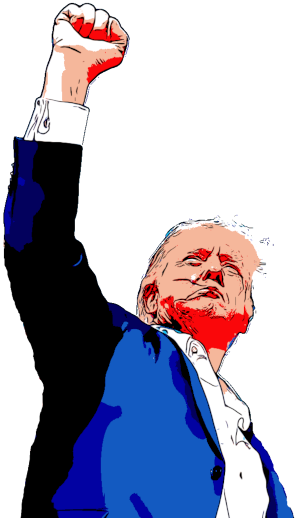Trump's Aggressive Stance Provokes Iran, Leaves Russia Silent
President Donald Trump’s recent fiery comments have elicited a sharp response from Iran, while Russia has chosen to remain silent amid escalating tensions.
President Donald Trump, aboard Air Force One, addressed reporters on Sunday night, discussing a range of international issues including a potential third term, ceasefire negotiations with Russia, and imposing tariffs on Iran. His remarks over the weekend triggered a swift and aggressive reaction from Iran, while Russian President Vladimir Putin has opted for a more reserved approach in the face of Trump’s provocations.
Iran’s Supreme Leader, Ali Khamenei, issued a stern warning on Monday, promising a “decisive and immediate” response to any threats from the United States. This came after Trump warned of potential bombings and increased tariffs if Tehran does not agree to a nuclear deal with Washington. Khamenei emphasized the ongoing enmity from the U.S. and Israel, stating, “They threaten to attack us, which we don’t think is very probable, but if they commit any mischief, they will surely receive a strong reciprocal blow.” He also warned against internal sedition, asserting that the Iranian people would handle such attempts themselves.
Behnam Ben Taleblu, an Iran expert and senior fellow at the Foundation for Defense of Democracies, suggested that Khamenei’s statements are a strategic move to “buy time” amidst increasing external and internal pressures. “At once, Khamenei sought to both downplay the chances of President Trump or Israel taking military action while also looking to deter such an eventuality due to the regime’s own policies,” Taleblu explained. He recommended that U.S. policy should aim to keep Khamenei off balance.
In contrast, Russia has taken a different approach to Trump’s demands for an end to the war in Ukraine. Over the weekend, Trump expressed frustration with Putin’s comments that undermined ceasefire negotiations, suggesting that the Kyiv government is illegitimate and unable to sign deals. Trump threatened secondary tariffs on Russian oil, potentially as high as 50%, if no agreement is reached. Despite these heated remarks, Putin has not issued a public response, maintaining a cool demeanor.
Dmitry Peskov, Putin’s chief spokesman, stated that Russia will continue efforts to restore relations with Washington, which were strained under the Biden administration following Russia’s invasion of Ukraine. Rebekah Koffler, a former DIA intelligence officer and Russia expert, described Putin’s strategy as a deliberate projection of calm and collectedness. She noted that Putin believes he has unsettled Trump, similar to how he has affected previous U.S. leaders, and sees this as a strategic advantage in ongoing geopolitical tensions.

